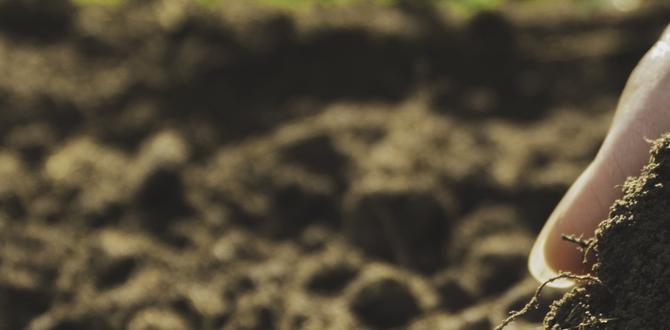Bangkok Etiquette & Tipping Made Easy: Navigate Thailand’s Culture Confidently. This guide simplifies local customs and tipping practices, ensuring a smooth and respectful journey through Bangkok for every traveler.
Welcome to Bangkok, a city that buzzes with life, vibrant colors, and incredible flavors! As you prepare to explore this amazing Thai capital, you might wonder about the best way to fit in and show respect. Navigating new cultural norms, especially around etiquette and tipping, can feel a bit tricky.
But don’t worry! I’m here to break down exactly what you need to know to feel comfortable and confident. This guide is designed to be your easy-to-follow roadmap, helping you avoid any unintentional faux pas and truly experience the warmth of Thai hospitality. We’ll cover everything from polite greetings to sensible tipping, so you can focus on enjoying your adventure.
Understanding Thai Culture: The Foundation of Etiquette
Thai culture is deeply rooted in respect, harmony, and a gentle approach. The concept of “Jai Yen Yen” (cool heart or calm mind) is central to daily life. This means avoiding confrontation, maintaining composure, and always striving for politeness. Understanding this underlying principle will guide you in many social interactions.
The Wai: More Than Just a Greeting
The wai is the quintessential Thai greeting, a graceful gesture performed with palms pressed together in a prayer-like fashion. The height of the hands and the depth of the bow signify the level of respect shown.
Here’s a simple breakdown of how to perform a wai and when to expect one:
- Performing a Wai: Press your palms together, fingers pointing upwards, and bring them to your chest or face. A slight bow of the head accompanies the gesture.
- Receiving a Wai: If someone younger or of lower social status (like a waiter or hotel staff) wais you, it’s polite to return the gesture, though your hands can be a little lower.
- When NOT to Wai: You generally don’t need to wai young children, those significantly younger than you, or when you’ve already established a more casual relationship. Also, you don’t wai people in a position of low status (like cleaners or vendors unless they wai you first).
- When to Expect a Wai: You’ll commonly receive a wai from hotel staff, restaurant servers, drivers, and anyone in a service role.
Respecting Elders and Authority
Age and status are highly revered in Thailand. Always show deference to elders or those in positions of authority. This means speaking softly, listening attentively, and avoiding public displays of anger or strong emotion.
The Head and Feet: Sacred and Profane
In Thai culture, the head is considered the most sacred part of the body, while the feet are the lowest. This distinction influences everyday behavior:
- The Head: Never touch someone’s head, even children. This is seen as highly disrespectful.
- The Feet: Avoid pointing your feet at people or religious images. When sitting, try to tuck your feet away or ensure they are not directed at anyone. Stepping over someone or their belongings is also considered rude.
Dress Code: Modesty Matters
While Bangkok is a modern city, dressing modestly, especially when visiting temples or more traditional areas, is crucial. Visible Tattoos: While tattoos are becoming more common, discreetly covering them when visiting religious sites is recommended.
- Temples: Shoulders and knees must always be covered. Avoid revealing clothing like short shorts, tank tops, or ripped jeans.
- General Sightseeing: While casual wear is fine, an effort to dress neatly can be appreciated.
Public Displays of Affection
Thailand is a conservative society regarding public displays of affection. Holding hands is generally acceptable, but kissing or hugging in public is frowned upon.
Monks: Special Considerations
Monks hold a highly revered status in Thai society.
Remember these points:
- Women and Monks: Women should never hand items directly to a monk. If you need to give something to a monk, first place it on a surface near him or hand it to a male intermediary who can then give it to the monk.
- Respectful Distance: Monks generally maintain a certain distance from unrelated laywomen.
- Food Offerings: If offering food, do so with respect and reverence.
Navigating Bangkok: Practical Etiquette Tips
Beyond the core cultural values, specific practicalities will smooth your interactions in Bangkok.
Eating Etiquette
Thai food is a highlight for many visitors, and enjoying it properly involves a few simple customs.
Key rules for dining:
- Utensils: The spoon is generally used for eating, while the fork is used to push food onto the spoon. Chopsticks are typically only used for noodle dishes.
- Sharing Dishes: It’s customary to share dishes in the center of the table. Each person will have their own small bowl of rice.
- No Wasting Food: Try to take only what you can eat.
- Street Food: Be adventurous! Many of the best culinary experiences are found on the streets. Observe where locals are eating – a good sign of quality and hygiene.
Shopping & Haggling
While haggling is common in markets, it’s important to do so respectfully.
Tips for polite bargaining:
- Be Friendly: Start with a smile and a friendly greeting.
- Know the Value: Have a reasonable idea of what the item is worth.
- Don’t Overdo It: Offer a price that is fair, perhaps 10-20% less than the asking price.
- Walk Away Politely: If you can’t agree on a price, thank the vendor and walk away politely. Don’t get aggressive.
- Fixed Prices: Department stores and malls generally have fixed prices.
Transportation Etiquette
Getting around Bangkok is an adventure in itself!
- Taxis: Insist on using the meter. If the driver refuses, find another taxi. Keep small denominations of Baht handy for payment.
- Tuk-Tuks: Agree on the price before you get in. Tuk-tuks are more for the experience than for long distances or economical travel.
- Public Transport: Be patient and orderly, especially during rush hour. Offer seats to the elderly, pregnant women, and those with small children.
Visiting Someone’s Home
If you’re fortunate enough to be invited to a Thai home, the following tips will ensure you’re a welcome guest:
- Shoes Off: Always remove your shoes before entering a home. Look for shoes left by the door.
- Gift: It’s customary to bring a small gift, such as fruit, sweets, or a small item for the house.
- Accept Food/Drink: Politely accept any food or drink offered to you. Refusing can be impolite.
Tipping in Bangkok: What to Expect and How Much
Tipping culture in Thailand is evolving. While not as ingrained as in Western countries, it’s increasingly common and appreciated for good service. Understanding when and how much to tip can make a difference for service staff who often rely on these extra earnings.
Restaurants and Cafes
Tipping in restaurants is not mandatory, but it’s a nice gesture if you received good service.
- Upscale Restaurants: A service charge of 10% is often already included in the bill. If it is, no additional tip is necessary. If a service charge is not included, a tip of 5-10% is appreciated.
- Mid-Range & Casual Restaurants: If service was good, rounding up the bill or leaving a small amount (around 20-50 Baht) is a common practice.
- Street Food Vendors/Food Courts: Tipping is generally not expected here.
Taxis and Ride-Sharing
Tipping your taxi or ride-share driver is not expected but is always welcome.
- Taxis: You can round up the fare to the nearest 20 Baht, or simply tell the driver to “keep the change” if it’s a small amount.
- Ride-Sharing (Grab): You can add a small tip through the app if you received excellent service.
Hotels
Tipping hotel staff is a great way to show appreciation for their work.
- Bellhops: Tip around 20-50 Baht per bag.
- Housekeeping: Leave 50-100 Baht per day on your pillow or bedside table. It’s best to leave this tip daily, as the staff who clean your room can change.
- Concierge: A small tip (50-100 Baht) if they went out of their way to assist you with reservations or bookings.
Tours and Guides
For tours and guides, tipping is a significant part of their income, so it’s highly recommended.
- Tour Guides: A tip of 100-300 Baht per person per day is customary for a good guide.
- Drivers: If a separate driver is provided, 50-100 Baht per person per day is appropriate.
Spas and Masseuses
Tipping is customary and expected if you enjoyed your spa treatment.
- A tip of 10-15% of the service cost is generally considered appropriate.
When in Doubt: The “Keep the Change” Rule
If you’re ever unsure, the simplest approach is to round up the bill or tell the service provider to “keep the change.” This is universally understood and appreciated. The official currency of Thailand is the Thai Baht (THB).
Crucial Note on Service Charges
Be aware that many establishments, especially in tourist areas and nicer restaurants, will automatically include a 10% service charge on your bill. Always check your bill carefully.
Here’s a quick look at typical tipping amounts:
| Service Provider | Suggested Tip (per person/per day) | Notes |
|---|---|---|
| Upscale Restaurant (no service charge) | 5-10% of bill | Check bill for included service charge |
| Mid-Range/Casual Restaurant | 20-50 Baht or round up | Optional, for good service |
| Taxi/Ride-Share | Round up or keep change | Optional |
| Bellhop (per bag) | 20-50 Baht | For assistance with luggage |
| Housekeeping (per day) | 50-100 Baht | Leave daily in the room |
| Tour Guide (full day) | 100-300 Baht | For good service and information |
| Tour Driver (full day) | 50-100 Baht | For safe and pleasant transport |
| Spa/Massage | 10-15% of service cost | Common for good treatments |
Respecting Religious Sites
Thailand is a predominantly Buddhist country, and its temples (Wats) are places of great spiritual significance. Observing proper etiquette here is paramount.
Entering Temples
Cover Up: As mentioned earlier, ensure your shoulders and knees are covered. This applies to both men and women.
Remove Shoes: Always remove your shoes before entering temple buildings or approaching Buddha images. Look for designated shoe racks.
No Pointing Feet: Be mindful of where your feet are pointing. Sit with your legs tucked to the side.
Silence and Reverence: Speak softly and move respectfully. Avoid loud conversations or boisterous behavior.
Photography: Be respectful when taking photos. Avoid photographing people praying unless you have their explicit permission. Do not take photos facing directly into sacred objects.
The Emerald Buddha and Other Religious Icons
Don’t Touch: Never touch Buddha images or other religious artifacts.
Don’t Climb: Avoid climbing on statues or structures.
The Tourism Authority of Thailand provides further information on a variety of aspects of visiting the country, including cultural norms.
Communicating with Locals
A little Thai goes a long way! Even simple polite phrases can be met with warm smiles.
Key Phrases:
- Hello/Goodbye: Sawasdee (krap for men, ka for women)
- Thank You: Khop khun (krap for men, ka for women)
- Sorry/Excuse Me: Khor thot (krap for men, ka for women)
Adding ‘krap’ (if you are male) or ‘ka’ (if you are female) at the end of sentences is a sign of politeness.
Important Considerations for All Travelers
Whether you’re traveling solo, as a family, or managing specific needs during your trip, these general points will enhance your comfort and safety.
Comfort is Key
Hydration: Bangkok is hot and humid. Drink plenty of bottled water.
Sun Protection: Use sunscreen, wear a hat, and consider sunglasses.
Comfortable Footwear: You’ll be doing a lot of walking, so comfortable shoes are essential.
Managing Personal Needs: For those who require personal care items like adult or child diapers, planning ahead is vital. Many large pharmacies and supermarkets carry these products, but it can be a relief to pack trusted brands from home, especially for specific fit and absorbency needs during long travel days or excursions. Having these readily available ensures you can focus on enjoying your travels without worry. Websites like Reliable Medical can offer insights into travel-friendly options for personal care needs, though local availability might vary.
Safety First
Be Aware of Your Surroundings: Like any major city, be mindful of pickpockets, especially in crowded areas.
Scams: Be wary of overly friendly strangers offering unsolicited help or deals that sound too good to be true.
Emergency Numbers: Keep local emergency numbers handy.
Frequently Asked Questions
Q1: Is tipping mandatory in Bangkok?
No, tipping is not mandatory in Bangkok or across Thailand, but it is greatly appreciated for good service. It’s a way to show gratitude and is becoming more common, especially in tourist-oriented establishments.
Q2: How much should I tip a tour guide?
For a full day of good service from a tour guide, a tip of 100-300 Baht per person is customary. If a driver is also involved, tip them separately with 50-100 Baht per person.
Q3: What should I wear to temples in Bangkok?
You must cover your shoulders and knees. Avoid revealing clothing like tank tops, short shorts, or overly tight or ripped garments. Long pants or skirts and shirts with sleeves are ideal.
Q4: Is it rude to point my feet at people in Thailand?
Yes, it is considered very rude and disrespectful in Thai culture. Your feet are considered the lowest part of your body. Always be mindful not to point them at people, religious images, or elders.
Q5: Should I haggle prices in Bangkok?
You can haggle prices in markets and with tuk-tuk drivers, but do so politely and with a smile. In department stores and larger retail shops, prices are usually fixed.
Q6: When should I use “Krap” and “Ka”?
These are polite particles added to the end of sentences. If you are male, you say “krap.” If you are female, you say “ka.” For example, “Sawasdee krap” (hello, male speaker) or “Sawasdee ka” (hello, female speaker).
Q7: Do I need to tip hotel housekeeping daily?
Yes, it’s best to tip housekeeping daily (50-100 Baht) as different staff members may clean your room on different days, and this ensures the specific person who serviced your room receives the gratuity.




